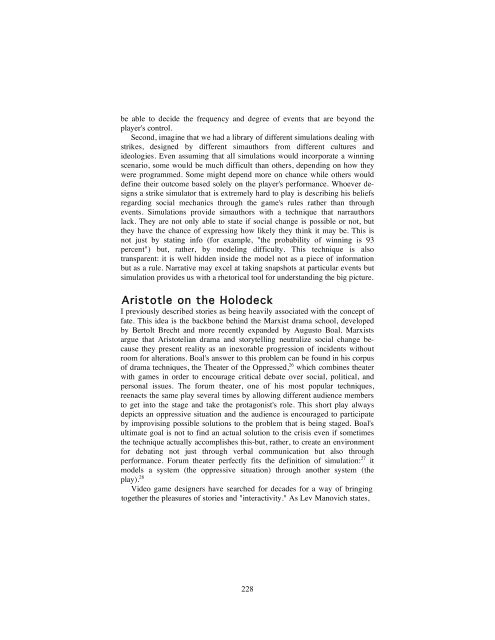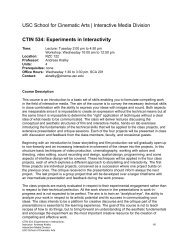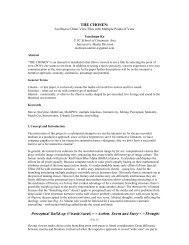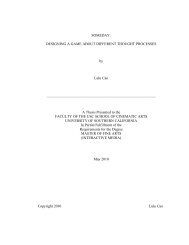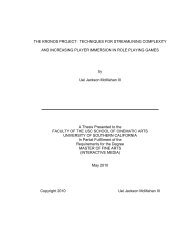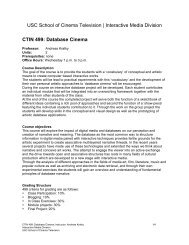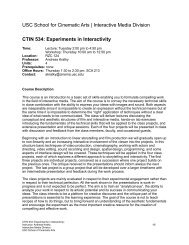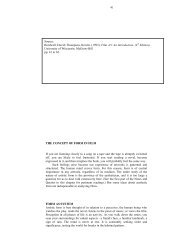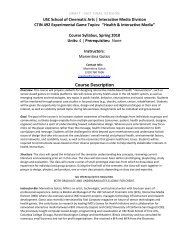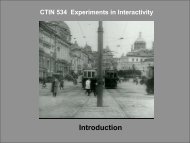Simulation versus Narrative - USC Interactive Media Division
Simulation versus Narrative - USC Interactive Media Division
Simulation versus Narrative - USC Interactive Media Division
- No tags were found...
You also want an ePaper? Increase the reach of your titles
YUMPU automatically turns print PDFs into web optimized ePapers that Google loves.
e able to decide the frequency and degree of events that are beyond theplayer's control.Second, imagine that we had a library of different simulations dealing withstrikes, designed by different simauthors from different cultures andideologies. Even assuming that all simulations would incorporate a winningscenario, some would be much difficult than others, depending on how theywere programmed. Some might depend more on chance while others woulddefine their outcome based solely on the player's performance. Whoever designsa strike simulator that is extremely hard to play is describing his beliefsregarding social mechanics through the game's rules rather than throughevents. <strong>Simulation</strong>s provide simauthors with a technique that narrauthorslack. They are not only able to state if social change is possible or not, butthey have the chance of expressing how likely they think it may be. This isnot just by stating info (for example, "the probability of winning is 93percent") but, rather, by modeling difficulty. This technique is alsotransparent: it is well hidden inside the model not as a piece of informationbut as a rule. <strong>Narrative</strong> may excel at taking snapshots at particular events butsimulation provides us with a rhetorical tool for understanding the big picture.Aristotle on the HolodeckI previously described stories as being heavily associated with the concept offate. This idea is the backbone behind the Marxist drama school, developedby Bertolt Brecht and more recently expanded by Augusto Boal. Marxistsargue that Aristotelian drama and storytelling neutralize social change becausethey present reality as an inexorable progression of incidents withoutroom for alterations. Boal's answer to this problem can be found in his corpusof drama techniques, the Theater of the Oppressed, 26 which combines theaterwith games in order to encourage critical debate over social, political, andpersonal issues. The forum theater, one of his most popular techniques,reenacts the same play several times by allowing different audience membersto get into the stage and take the protagonist's role. This short play alwaysdepicts an oppressive situation and the audience is encouraged to participateby improvising possible solutions to the problem that is being staged. Boal'sultimate goal is not to find an actual solution to the crisis even if sometimesthe technique actually accomplishes this-but, rather, to create an environmentfor debating not just through verbal communication but also throughperformance. Forum theater perfectly fits the definition of simulation: 27 itmodels a system (the oppressive situation) through another system (theplay). 28Video game designers have searched for decades for a way of bringingtogether the pleasures of stories and "interactivity." As Lev Manovich states,228


